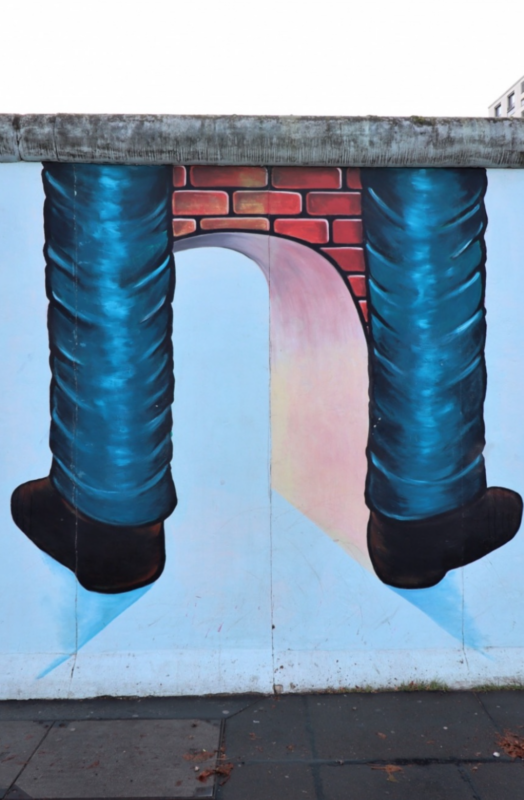Normally I start January with a sense of renewed energy. I often make a vision board and set goals for the year. This year I was carrying a different energy. I ended 2023 unusually busy and started 2024 in the same way. I was lamenting the lack of space I had to pause after a busy Christmas and New Year period in which I had very little rest. Then, just like that, the universe gave me a forced pause. I had 7 nights in isolation in Airedale hospital.
On 6 January I went to bed feeling flu-like. I woke up with double vision and unable to walk without support. I thought I had suffered some form of stroke; needless to say, it was quite frightening. I was advised to go straight to A&E where I spent the next 48 hours having several tests to rule out serious stuff like a bleed on the brain or encephalitis. In the end I was told I had developed a rare form of Guillain-Barre called Miller Fisher Syndrome, that I would get better in a few weeks and that I would have 5 days of immunoglobulin treatment. Due to having flu, I was thankfully given my own room, which was a blessing and a curse. What followed was many hours of being on my own, waiting for Doctors to come and tell me what was happening. Those who know me well, know that I prefer the company of people most of the time so being asked to isolate in four walls was uncomfortable for me and I had some low moments.
How an audiobook lifted my soul
As I was having trouble with my sight, reading was not an option so I decided to listen to audiobooks. After 15 hours of listening to Harry’s story in “Spare” (definitely a good distraction) I opted for something a bit deeper – “The untethered soul by Michael A. Singer”. This book turned out to be medicine for my soul. It helped me to have a valuable life lesson in the power of consciously shifting one’s mindset to seek out a different perspective.
A couple of days into my stay in hospital, I mentioned to my husband how much I would love to be outside as it was sunny and cold – my favourite weather. He responded by saying “trust me it’s horrible out there”. I said, “I would do anything to be allowed to go outside right now”. It was a poignant moment as we both reflected on my current reality.
A day later I got to this point in The Untethered Soul:
“You’ve walked outside thousands of times, but how many times have you really appreciated it? Imagine a person in a hospital bed who has just been told they’ve got a week to live. They look up at the doctor and say, “Can I walk outside? Can I look at the sky just one more time?” If it were raining outside, they would want to feel the rain just once more. For them, that would be the most precious thing. But you don’t want to feel the rain. You run and cover up.”
A transformational shift in perspective
I listened to that lying in my hospital bed and it really resonated. Our perspectives are often driven by our circumstances. In that moment I realised:
1. Thankfully I was not facing a terminal diagnosis.
2. That I had spent 4 days in one of two positions, lying on the bed which had a view out the window of a concrete building or sitting in a chair, which had a view of 4 walls.
3. I had the power to consciously change my view and therefore my perspective.
So, I raised my bed like an excited child with one of those hospital machines in their hand and put my pillow at the other end of the bed. From there, I could see the sky, which was full of birds. I lay there watching the birds swirling round the sky in groups for ages. It was honestly like medicine for the soul. The next best thing to being free was watching the flight of the birds and trying to imagine their view of the beautiful Airedale valley. I knew I would be outside again soon.
When I reflected further, I concluded that our minds are the most powerful things that we have. My immune system’s response may have acted beyond my control, but I had the power to change my beliefs, not only about how quickly I would get better, but also about my circumstances.
I was reminded of Viktor Frankl’s words in “Man’s Search for Meaning”:
“Between the stimulus and response, there is a space. And in that space lies our freedom and power to choose our responses. In our response lies our growth and our freedom”.
Whilst I was stuck in hospital for a few more days, I was not in Auschwitz, nor had I been told that I would not get better. For me the only sensible response was to focus on believing that I would get better quickly – and I did – two days later my main symptoms had disappeared. I will never know what role my mind played in that, but I feel immensely grateful for my luck and for the incredible care that I was given by the NHS. I was treated with 5 doses of immunoglobulin, which is a blood product prepared from pooled plasma from up to 100,000 different donors. Whilst I sat there having my daily treatment, I reflected on the love and generosity of the people who had given up their time to donate blood. Such an important thing for us all to do and I will now increase the regularity with which I donate.
Lessons for Conflict Resolution
There is a lesson for all of us in this, but I also reflected on how I could use my experience in my work. When people are involved in conflict, they easily descend into a state of despair. They spend hours thinking about how they have been wronged and start building a story about the appalling acts of the person on the “other side” of their battle, who they often demonise. Lawyers play a part in this too. Our job as lawyers is to find the evidence to back up what our clients tell us is true. We then draft elaborate, verbose (and often highly aggressive) correspondence explaining why our clients are right and their opponents are wrong. There is often a strong sense of confirmation bias running through every legal dispute, which both clients and lawyers are susceptible to. The more I mediate, the more I sense that lawyers can get caught in their client’s drama, which clouds their judgment and then fuels the raging fire of litigation.
I was once asked by a lawyer if in every mediation I sensed that there was always one unreasonable party who was the primary cause. I immediately said no. It occurred to me that was the perspective of lawyers and their clients, who only had the opportunity to see one side. As a mediator, I am always in a unique position where I always hear two versions of a story. When you truly listen, each story normally makes perfect sense. It’s rational because it is that person’s unique view of the situation – it’s their truth. If more people in conflict could allow themselves to open their minds to the possibility that their version of the story is not likely to be wholly accurate (because in conflict there is generally no universal truth), conflicts would be resolved more easily. The best lawyers know how to step back and consider the alternative perspectives. They are brave enough to challenge their clients’ biases and encourage a more open-minded approach to conflict resolution.
So, next time you find yourself advising in an emotionally charged dispute, ask yourself how you can change your own mindset or perspective on the dispute to help your client see the multiple perspectives which are likely to be at play. If all else fails, I recommend stepping away from your computer for a few moments to look at the birds.

